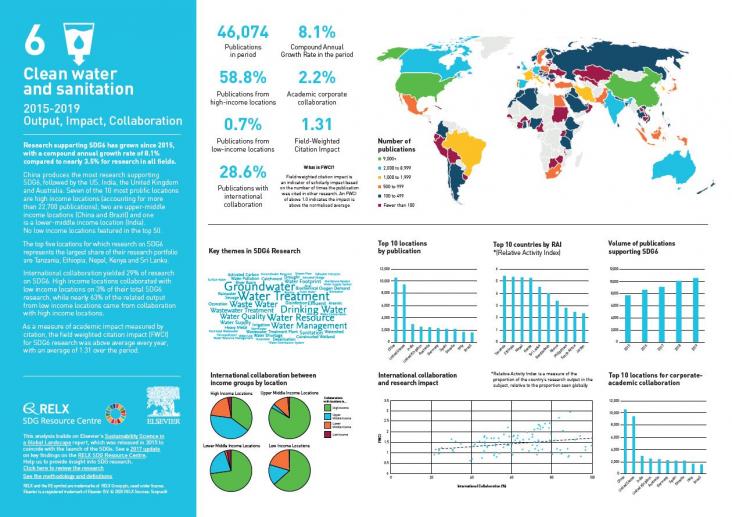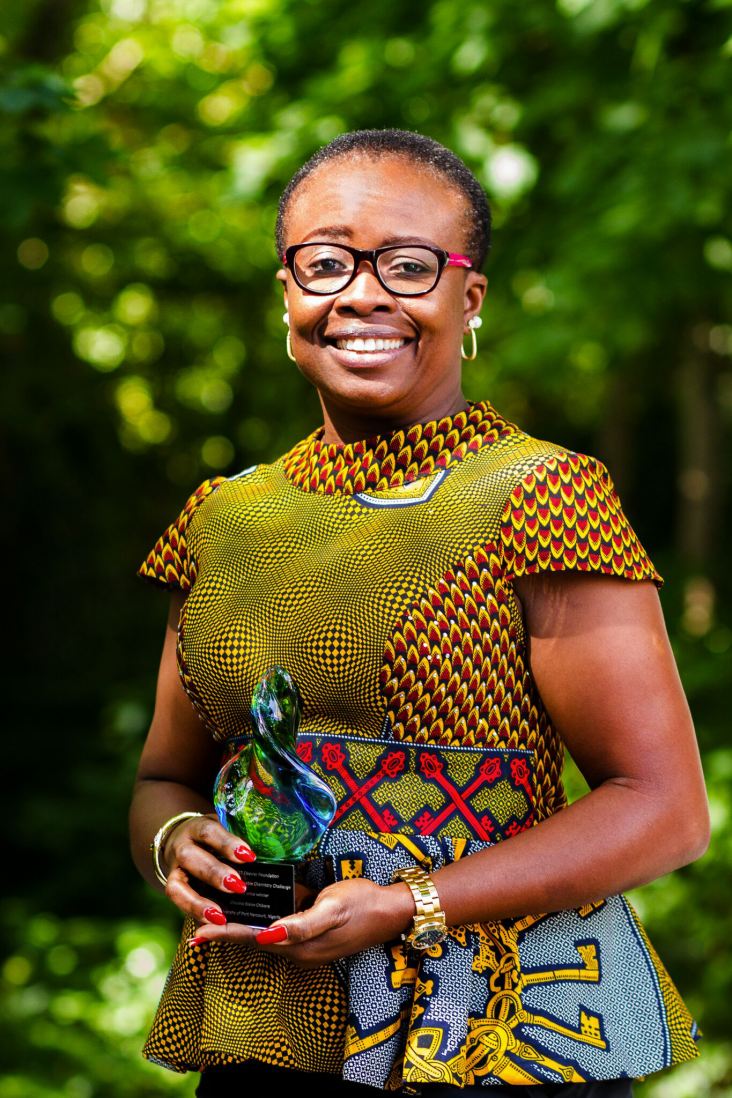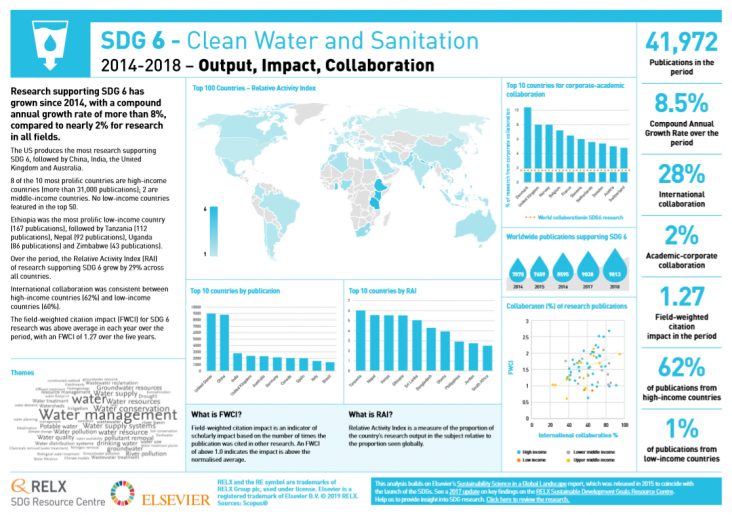
Advancing SDG 6, the RELX Environmental Challenge awards innovative projects that provide sustainable access to safe water or sanitation, with a first prize of $50,000 and a second prize of $25,000.
RELX’s Global Head of Corporate Responsibility, Dr Márcia Balisciano, talks to Dr Annabelle Houdret and Dr Michael Brüntrup about water security, sustainable consumption and SDG 6.

Over the past five years, we have used data and analytics to help the research and healthcare communities navigate the sea of research and to put collaboration, both interdisciplinary and international, at the heart of scientific progress on the SDGs. View findings for SDG 6.

On Monday 24 August 2020 – at the beginning of World Water Week - RELX announced the winners of the 2020 RELX Environmental Challenge. Now in its 10th year, the RELX Environmental Challenge supports innovative solutions that improve sustainable access to safe water and sanitation where it is at risk, contributing to SDGs 1, 3, 6 and 10.

Each year the RELX Environmental Challenge is awarded to projects that best demonstrate how they can provide sustainable access to safe water or sanitation. In the past decade, the company has awarded $750,000 to projects and solutions that improve the world’s water quality and sanitation. This article, using innovative parallax storytelling technology, looks at the tangible impact of the RELX Environmental Challenge.
Partner content
World Bank
The Atlas of Sustainable Development Goals 2020 presents interactive storytelling and data visualizations about the 17 Sustainable Development Goals.

The SDG Impact of COVID-19 podcast series gathers expert opinion exploring the impact of COVID-19 on the Sustainable Development Goals. In this segment, we get the view of Virginia Gardiner, Founder and CEO of Loowatt.

In 2017, Chioma Blaise Chikere was awarded the second prize of the Green and Sustainable Chemistry Challenge. Her project “Eco-restoration of crude oil-polluted land in Nigeria” demonstrated how organic nutrients such as garden fertilizers and animal excreta can be used to degrade hydrocarbons, cleaning up the soils heavily contaminated by decades of oil spills and advancing SDGs 6, 13 and 15. Three years later, we caught up with Dr. Chikere to learn about her research journey.

The latest analysis of SDG-supporting research focusses on SDG 6: Clean Water and Sanitation. This graphic shows key metrics for research into clean water and sanitation.
